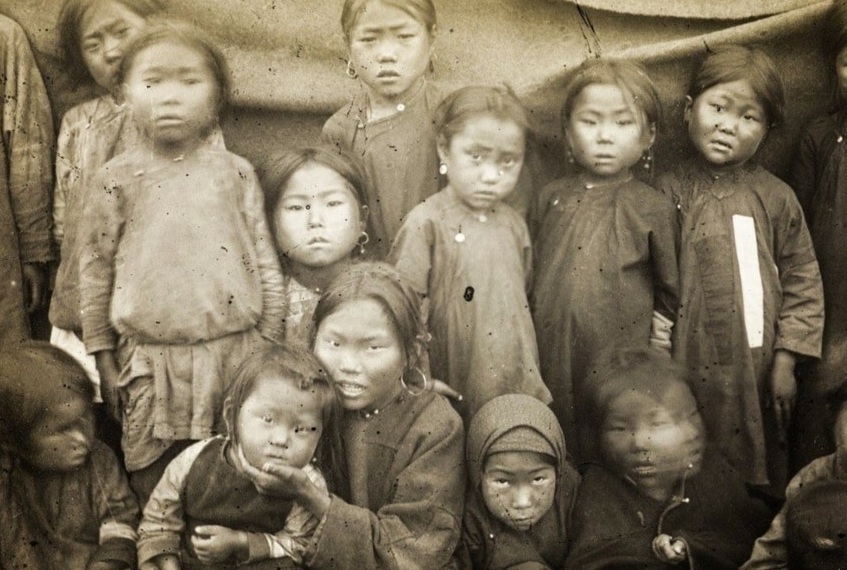The Nivkh, indigenous inhabitants of the Russian far east
Along the banks of the Amur River and on Sakhalin Island, small ethnic groups have lived since time immemorial, braving extreme cold and remaining distant from modern-day Russia while preserving animist religious traditions. Documented by great 19th-century Russian explorers, today they are a small people of only a few hundred individuals who speak their own language. And they believe that even if they vanish, they will reunite with the cycles of nature.
Moscow (AsiaNews) – The website Sibir.Realii continues its project Takie malye narody (“Such Small Peoples”), which tells the stories of the "aborigines" of Siberia and the Russian Far East, stretching to the Pacific coasts and islands. Along the banks of the Amur River—marking the border between Russia and China—and on the vast island of Sakhalin at the river’s mouth, small ethnic groups have lived since ancient times. Known by various names, from the Manchus to the Gilyaks (a term roughly derived from “boats”), they remain culturally distinct.
Another general name is Nivkh, from the word nivk, meaning “man.” They were first encountered by Russian explorer Vasily Poyarkov in 1644 as he descended the Amur to its outlet into the ocean. One of the first ethnographic descriptions was published in 1849 by Captain Gennady Nevelskoy, who confirmed that Sakhalin was indeed an island and that the Amur’s mouth was navigable. He wrote that the Gilyaks “are at an incredible distance from any form of civilization,” and that “they have no fighting spirit.” They lived in tribal groups ranging from 15 to 200 people, residing in yurts, large nomadic tents or huts, where “warm sleeping bunks are arranged along the inner walls, heated by pipes from the fireplaces.”
The staple food of this population has always been sun-dried fish, called jukola, which Nevelskoy described as “salmon or flounder.” They also hunted large marine fish and predators, and, when necessary, ate dog meat. Any traveler—even a complete stranger—could find hospitality in a Nivkh dwelling, provided they respected family customs: “not lying with their head toward the wall in the sleeping bunk, and not taking fire outside the yurt.” Violators were expelled and would find no welcome elsewhere, as explorer Vladimir Arsenyev described—calling this system a kind of “primordial communism.”
After observing Russians dig up and eat potatoes without dying, the Gilyaks began cultivating land as well. Russian writer Ivan Goncharov visited the region in 1854 and wrote: “they live even in -40 degrees under dry wood bushes, even mothers nursing infants. If they wish, they light a fire—there’s plenty of forest here… they eat pink salmon and wild garlic, but they are few, and around them lies an infinite emptiness.”
Anton Chekhov's famous 1890 journey, documented in his book Sakhalin Island, recounts how the Gilyaks were pushed onto mainland territory under pressure from the Japanese—disputes over islands in these latitudes between Russia and Japan remain unresolved. According to the great playwright, the Gilyaks “belong neither to the Mongol nor Tungusic ethnicity, but are a unique and unknown people who perhaps once dominated all of Asia.” Scholars still debate the true origins of the Nivkh.
Today, this curious little people is reduced to just a few hundred individuals who maintain animist religious traditions, devoting reverence to all that nature offers: water, earth, plants, and more. They do not follow an official shamanic practice—turning to sorcerers or seers only in cases of serious illness, accidents, or famine. For this reason, they were not deeply affected by Soviet atheist propaganda, nor are they particularly receptive to the Orthodox religious outreach of modern Russia.
As told by Vladimir Sangi, the last writer and cultural representative of the Gilyaks: “The Nivkh believes that in times of need, one can transform into a bird, a fish, or a beast of the forest. And if today he is considered a member of a vanishing people, whose language is no longer spoken by anyone, he does not worry too much—because he knows he can blend with nature and speak all the languages of the creatures that inhabit it.”
07/02/2019 17:28







.png)










